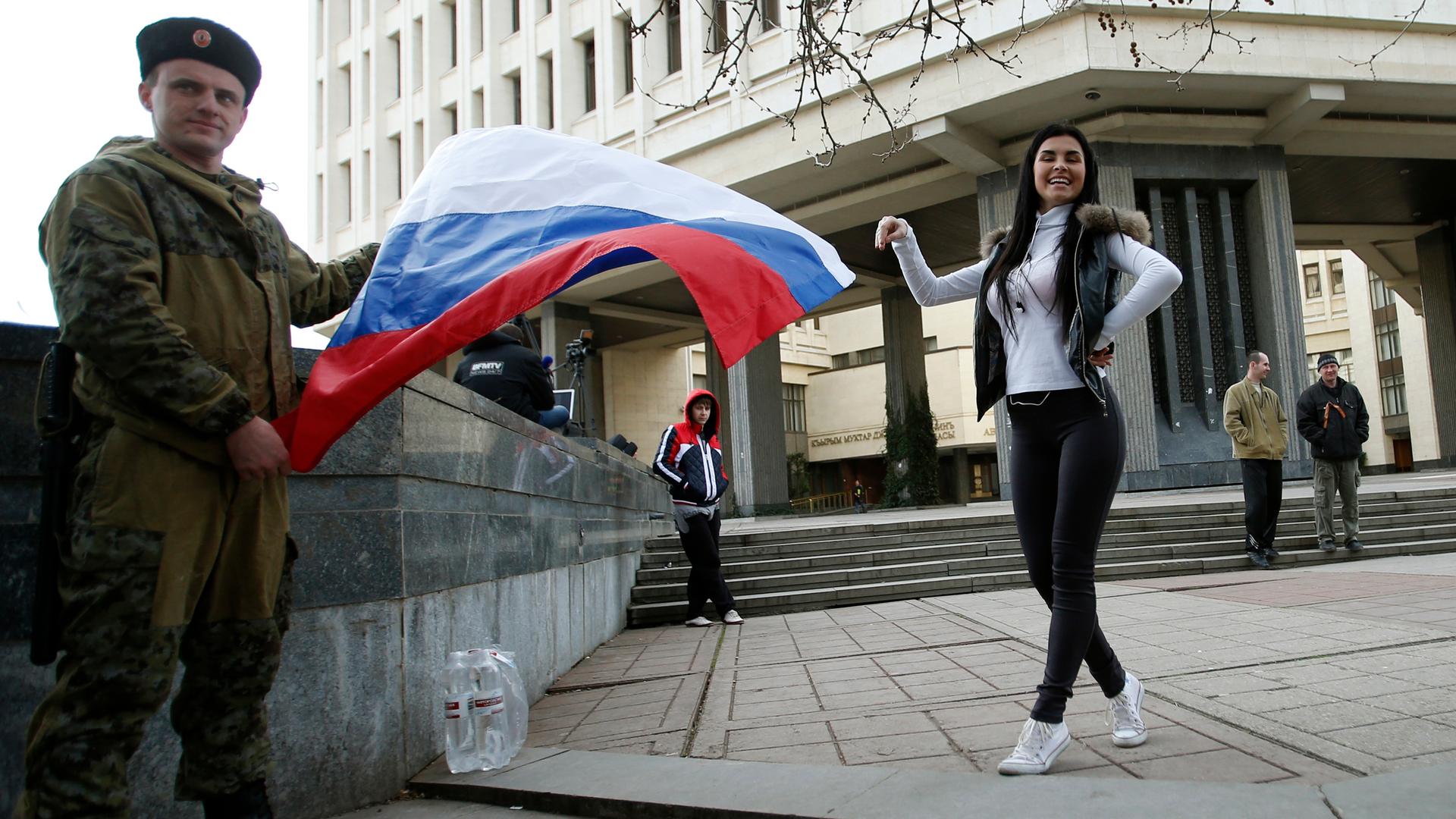Can Crimea really just ditch Ukraine for Russia?
A woman poses for a picture next to a member of a Crimean self-defense unit during a pro-Russia rally at the Crimean parliament building in Simferopol March 6, 2014.
If you're confused about who is in charge of Crimea, don't worry. You're not alone.
Even the BBC's Natalia Antelava, had to correct us when we called her earlier today. "You realize I'm in Russia, right?"
She's joking. But only a little. The regional government in Crimea declared the region to be part of Russia.
It also announced the Crimean people would vote on the matter in a referendum in 10 days. President Barack Obama reacted by saying the vote itself would be a violation of international law.
Antelava says in the Crimean capital of Simferopol, people had different reactions. It all depends on whom you ask. Most people seem to support Moscow. No surprise. Ethnic Russians dominate the population.
"They want to see a greater autonomy and closer relationship with Russia," she says. "They see their future as part of the Russian Federation."
That future would be tough on the Crimean Tatars. In the 1940s, Joseph Stalin deported the ethnic group en mass. And Russians are targeting Tatars again. Antelava says people scratched crosses into the home of at least one Tartar family.
"They're terrified about what's going on," she says.
Antelava says Kiev has little influence. The capital city lacks a foothold in the area. Russian soldiers occupy, or block, the military bases on the peninsula. And yes, the soldiers are Russian. Unmarked uniforms can't hide this fact. Nor can balaclavas. The local Crimean government even admitted the men are Russian soldiers. The government added that Ukrainian soldiers are the occupiers. In their minds, the statement is correct. In their minds, Crimea is part of Russia.
The decision to go with Russia changes nothing for leaders in Kiev. But Antelava says the opinions of Kiev mean little if they can't do anything about it. That gets us to a big question: will Ukraine fight for Crimea?
Antelava doesn't know. No one does. But there are dangers to allowing Russia to just take over. It sends a message to Russian President Vladimir Putin that such moves are okay.
"And if it is OK, what's next?" she wonders.
